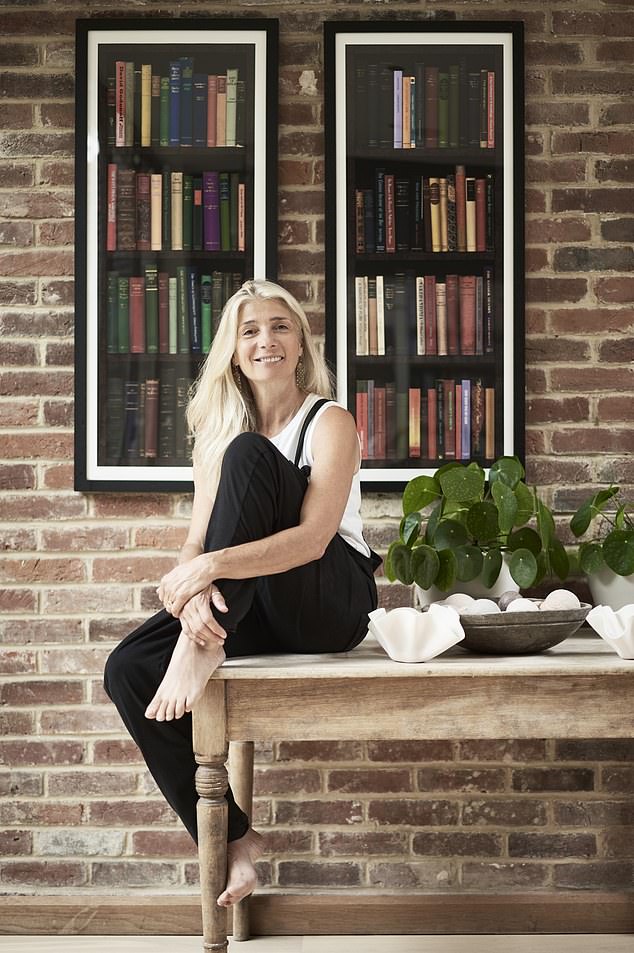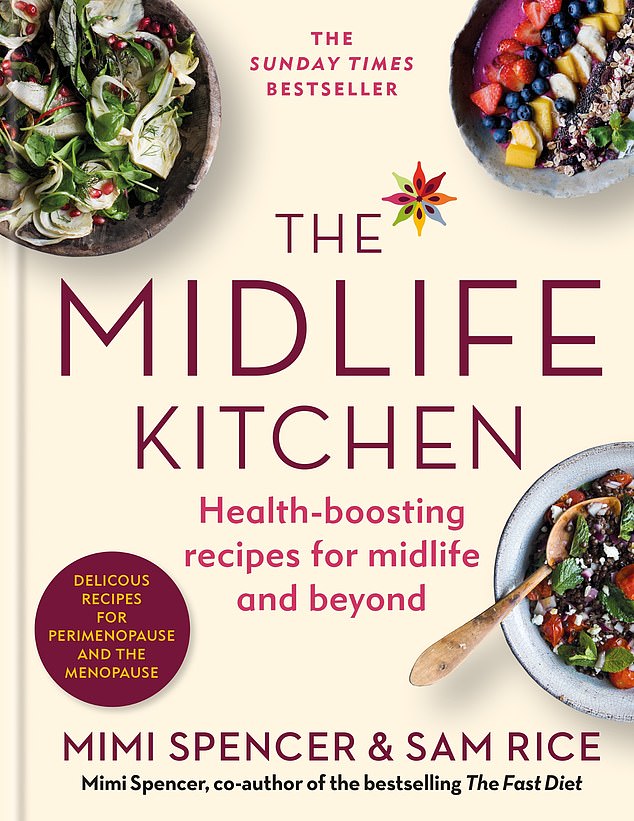When I wrote about intermittent fasting in The Fast Diet with the late Michael Mosley in 2012, we often stated, sagely and with good reason, that weight-loss took effort, commitment, focus and loads of boring, difficult things that no one really wanted to do.
There is no silver bullet, we said, no magic wand.
Well, dammit, it turns out that there is! GLP-1 drugs have transformed the conversation around weight-loss, so suddenly that it’s a systemic shock. More than 1.5 million people in the UK are now on some version of semaglutide; with the Government’s new rollout, 220,000 people are expected to receive Mounjaro from their GP in the next three years.
At first, I worried about reported side-effects, from nausea and bloating to panic attacks and pancreatic problems. I worried about the potential for malnourishment and loss of muscle mass when people suppress their appetite and instead eat small portions of bad food.
I’m now concerned too about off-label prescriptions, self-dosing, weight bounce-back and skinny women injecting Mounjaro to get ‘beach ready’.
But more than anything, I worry how the jabs lead to a divorce from food. For me, a cookbook writer (and human being) with a lifelong interest in healthy eating and a new edition of my bestselling cookbook out this month, it’s dispiriting to see so many people turn away from food as a source of nourishment and joy. Apparently, people on it essentially stop cooking.
I read a triste tale from one writer, happily losing weight on Mounjaro, whose children now ferret in the fridge for food while she, one imagines, enjoys her slimmer reflection in the mirror. ‘Food has become completely dull,’ she says, ‘and I have begun to wonder why I liked it in the first place.’
Dear me. What a curious and loveless approach to life, treating our warm, sensitive bodies as automata and food as an inconsequence, when we all know food can be love, laughter, joy, challenge, social and familial glue.

For me, a cookbook writer (and human being) with a lifelong interest in healthy eating, it’s dispiriting to see so many people turn away from food as a source of nourishment and joy

Mail columnist Dr Michael Mosley died last year during a holiday in Greece
Go one step further, if you’ll stay with me on this rant ride, and it’s easy to become spitting mad that Big Food somehow hooked us on ultra-processed foods, and Big Pharma has ‘solved’ the ensuing obesity epidemic by selling us a skinny jab for £250 a month. How on earth have we come to this?
I spent a good chunk of time pondering these things. Then I had an epiphany, and it had to do with one of my best friends. Let’s call her Janey. Janey has always been large, round and soft like a bun, and we never really spoke about it, despite the fact that I have spent half a lifetime writing about diet.
A few weeks ago, we met to walk our dogs in the park as we do every couple of months, and I spotted her trademark strawberry-blonde curls far away in the distance. But it couldn’t be Janey. Her shape was all wrong. She was slim. I greeted her and couldn’t help but remark on her weight (I usually don’t, subscribing to the omerta clause in the contract of female friendship).
At first, she blathered that she had a personal trainer, stopped drinking wine, given up carbs, but eventually she said in a tiny voice that she was on Mounjaro. She bought it online, shopping around for cheap ‘trial month’ deals. She’d lost three stone in three months.
Over the next few weeks, Janey opened up about how she’d felt about her previous life as (her words) ‘a heifer, a fat middle-aged woman who hated herself because she couldn’t wear a vest top or climb a hill’.
Through tears, she described the years and years, the decades, of self-hatred, the guilt built around her diet failures, the evenings when she didn’t go out, the invitations she declined because she’d have to get on a chair lift, zip up a buoyancy aid, or just exist in a world where her shape didn’t fit.
For Janey – and I recognise it’s not the case for everyone – being fat sucked. And being not fat has brought her joy. The jab released her, changing not just her shape but her life.
For some people, dieting orthodoxy simply doesn’t work. Janey, like many people, reported suffering from ‘food noise’ – a constant, intrusive internal chatter which leads inexorably to the snack aisle.

The Midlife Kitchen: Health-Boosting Recipes For Midlife & Beyond by Mimi Spencer and Sam Rice (£27, Mitchell Beazley) is out on August 28
Bear in mind that ultra-processed foods are designed to be hedonic. They hijack your appetite by delivering a squirt of feel-good dopamine to the brain’s reward centres. If food is your addiction, then a drug which breaks the cycle has got to be worth a shot.
Janey opened my eyes to how hard it is to diet if your body doesn’t respond, how it really feels to be heavy. How bloody lonely it can be.
Weight management is a good deal more nuanced than I once imagined, and the days of ‘one size fits all’, when everyone was on Atkins or 5:2, seem an anachronism now, like using a map or having only three TV channels.
The 5:2 diet, for example, where you eat normally for five days a week and calorie restrict for two, appears to work incredibly well for many people, but for some, fasting seems a whole lot of effort for very little return.
Michael and I would scratch our heads at the different impact the diet had on different people, but our metabolisms don’t bear easy categorisation or compartmentalisation. You are you. And your path to a happy weight is as personal as your favourite dance tune.
With that in mind, I can share my own routine as I approach 60, which may resonate or not – it’s less a lesson and more a serving suggestion – but it has certainly led me to be happier in my body than I have ever been.
I pretty much ‘eat’ what I write about in my new book The Midlife Kitchen, which takes a ‘stealth health’ approach, including tons of veg, nuts, legumes, leaves, seeds, lots of variety, lots of vitality.
I buy organic coffee and devilishly dark chocolate, really good extra virgin olive oil, seasonal fruit, local honey, sourdough which smells like heaven from the bakery up the road – all of which is relatively expensive. But I barely eat meat and never drink alcohol – which isn’t.
If this makes me sound an insufferable goody-goody, my excuse isn’t just that I’m a healthy eating advocate, it’s that I have histamine intolerance which dictates what I can eat. Mostly, this means only fresh food.
Despite having a sweet tooth and a weak spot when it comes to Liquorice Allsorts, I have been ‘fasting’, in one form or another, for 13 years. It feels familiar and effective, and I enjoy the sensation of sometimes being mildly hungry.
Like many women I know (the ones who no longer have kids at home, or never did), most mornings I eat after 11am, because I’m not hungry till then, and then again at around 7pm, because I don’t like the feeling of eating much later. So, that’s two meals a day.
An incredible number of people I know fast like this, to their own rhythm – 16:8 (where you eat all your daily food in an eight-hour window), alternate-day fasting (known as ADF), 12-hour (only eating in a 12-hour window) – having test-driven what works for them and, crucially, what fits into their schedule. And once you’ve been doing it for years, it’s a way of life.
And that’s the point. Eating well has, I think, to be a way of life, not something you toy with, but a habit that feels as natural as wearing your favourite trackies.
For me, being 57 has afforded a bit more time for attuning, for listening in. In my experience, at a certain point – assisted no doubt by the invisibility cloak of middle age – you stop caring about the frilly stuff and start to gain wisdom, that most elusive and under-rated of attributes.
After years spent fighting your body, you reach a kind of settlement, an agreement to cease fire and accept who you are, not who you’d rather be, even it’s not ‘perfect’.
Your snaggle teeth? Well, they’re kind of characterful. The soft swoop of a bingo wing? All the better to hug with. Getting older, for me, has meant getting kinder. When I look in the mirror now, I’m not really seeking to change anything, I’m just observing things with a sort of benevolent interest.
For Janey and so many people, though, such acceptance first requires weight-loss, and the GLP-1 medications offer almost uncanny success. As I often do when deliberating a tricky issue, I wondered what Michael Mosley would have thought – he died just as drugs like Wegovy started to grip the nation.
‘I’m not against it,’ he said in 2023, ‘particularly when it’s been used for type-2 diabetics.
‘But I think the worry is that unless you use it as an opportunity to acquire healthier habits, unless you have switched your lifestyle at the same time, then it’s unlikely to be terribly healthy.’
The Royal College of Physicians (RCP) recently agreed, responding to the Government’s new Ten-Year Health Plan by saying ‘such jabs cannot make meaningful and lasting progress on tackling obesity’.
Dr Kath McCullough, special adviser on obesity at the RCP, told Radio 4’s Today programme, ‘They’re not the silver bullet we think they are.’ Tackling the obesity crisis, she says, needs so much more than a jab in the belly: it requires wraparound care, access to healthy food and green spaces, community support, a crackdown on sugar and UPF advertising.
In short, she says, ‘relying on the jab to solve it all is a bit short-sighted’. And critically, we have ‘only been using some of these drugs for 18 months to treat diabetes; what we don’t know are the long-term outcomes’.
Dr Federica Amati, head nutritionist at gut health experts Zoe, has said, ‘It’s a serious drug with very strong pharmaceutical effects, so every prescription should be followed up by a healthcare professional.’ For those who have a compromised reward pathway in the brain, ‘the drug could be problematic. It could potentially lead to more anhedonia – what I call a lack of joy in life.’
Ah. There you have it. If I have learned anything, it is that ‘joy in life’ is the primary goal. And the route to discover yours will be personal. Losing weight quickly may help. But cooking and eating good food will offer stability, comfort and, yes, joy in an uncertain world. Which is why you may still need a lovely cookbook.
I know a very good one, if you’re interested.
The Midlife Kitchen: Health-Boosting Recipes For Midlife & Beyond by Mimi Spencer and Sam Rice (£27, Mitchell Beazley) is out on August 28. This new edition is available to pre-order now.












